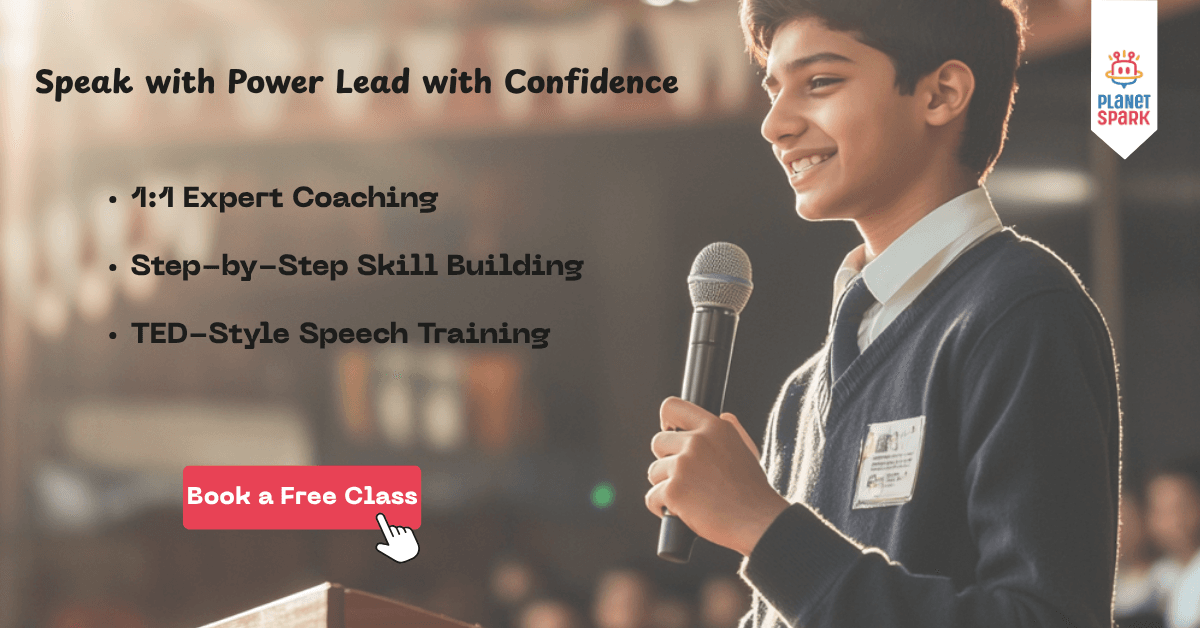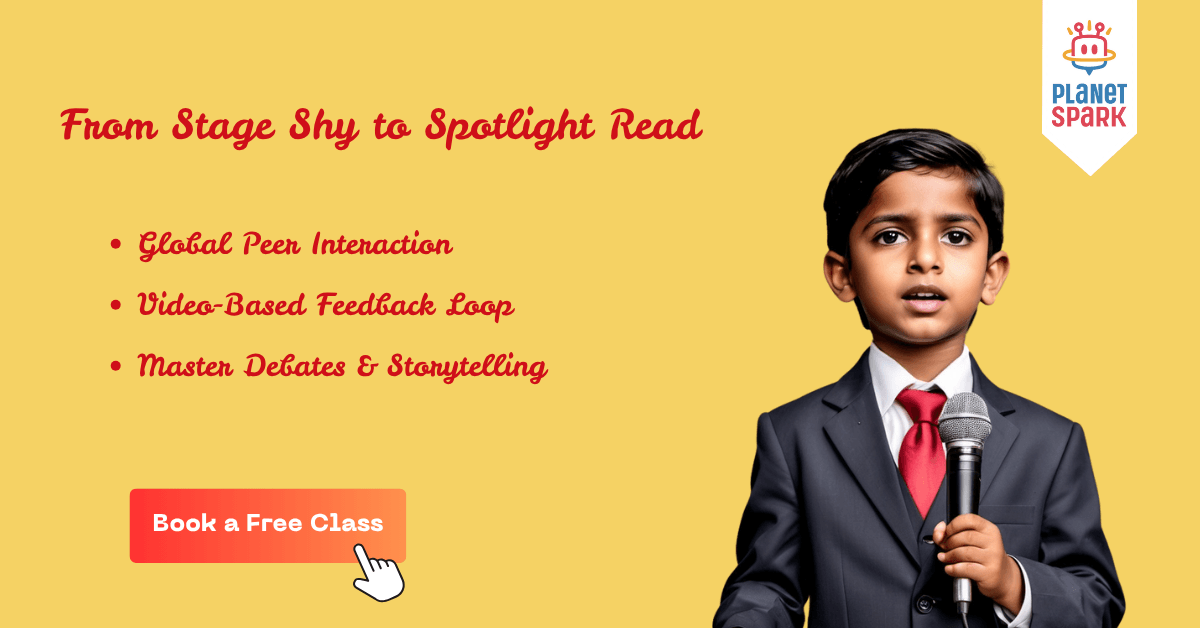Speech on the Importance of Education | Benefits & Role in Life

Table of Contents
- What Is Education Really About?
- Education as a Path to Career Success
- Why Communication Skills Are Vital in Career Growth
- How Education Transforms Society
- The Role of Speech and Expression in Education
- Why Education Is the Foundation of Progress
- CTA
- The Role of Education in Character Building
- Types of Education
- Education and Emotional Intelligence
- Importance of Communication in Education
- Education Promotes Critical Thinking and Problem Solving
- Education and Global Citizenship
- Technology and Education: A Powerful Combination
- Why Should Schools Focus on Holistic Education?
- Challenges in Accessing Education
- Conclusion:
- FAQs:
Good morning/afternoon, everyone,
Today, I want to talk about something that is not only important for individuals but also essential for the progress of society - Education. Education isn’t just about books or degrees. It’s about developing minds, shaping values, and empowering lives.
What Is Education Really About?
Education goes beyond memorizing facts and passing exams. It is the process of acquiring knowledge, skills, values, beliefs, and habits that guide how we think, communicate, and act. Formal education happens in schools and colleges, but learning never ends. Life itself is a teacher.
A truly educated person is not just someone who scores well in exams, but one who:
Thinks critically
Makes informed decisions
Respects diverse opinions
Takes responsibility
Practices empathy
When we talk about education, we include moral education, life skills, communication, and social understanding - not just academic knowledge.
Education as a Path to Career Success
Beyond character building and societal awareness, education is a cornerstone of professional development. A good education not only imparts knowledge but also teaches the discipline, time management, and persistence required in the working world.
In today’s competitive job market, employers are not just looking for degrees - they're seeking individuals who can think, adapt, and communicate. Education provides this foundation by fostering:
Leadership skills through team projects
Adaptability through exposure to varied subjects and technologies
Presentation and interpersonal skills through class discussions and assignments
Students who have had a holistic educational experience are better equipped to explore career paths confidently, make informed choices, and succeed in a wide range of industries.
Why Communication Skills Are Vital in Career Growth
No matter the field - engineering, business, medicine, or the arts - communication is key. Whether you're pitching ideas, participating in meetings, leading teams, or applying for jobs, your ability to speak clearly and confidently can set you apart.
That’s why speech training, debate participation, and public speaking must become essential components of education systems. These are no longer "soft" skills - they are success skills.
How Education Transforms Society
An educated society is empowered to think critically, question norms, and improve quality of life. It also nurtures tolerance, justice, and collective progress. Here are a few ways education shapes society:
Reduced Crime Rates: Studies show that access to education lowers crime, as educated individuals are more likely to find legal and fulfilling employment opportunities.
Improved Public Health: Education leads to better health decisions, awareness of nutrition, family planning, and disease prevention.
Civic Participation: Educated citizens vote, volunteer, and participate in democratic processes, ensuring stronger governance and accountability.
Breaking Social Barriers
Education is also the most powerful tool to eliminate casteism, racism, gender discrimination, and religious intolerance. When people are educated, they are less likely to judge others based on outdated societal hierarchies. Instead, they learn to value talent, respect differences, and work toward equality.
The Role of Speech and Expression in Education
Speech is one of the most powerful tools in education. Great speeches have shaped the course of history. From Mahatma Gandhi and Martin Luther King Jr. to Malala Yousafzai, speech has been used to spread awareness, demand justice, and inspire change.
Educating students to express themselves confidently is as important as teaching them math or science.
Public speaking:
Enhances self-esteem
Develops critical thinking
Builds leadership and persuasion skills
Helps students stand out in interviews, debates, and public platforms
That’s why parents and teachers must actively encourage public speaking opportunities both inside and outside the classroom.
Ready to Build Leadership Through Speech?
At PlanetSpark, our Public Speaking Course is tailored to equip young learners with confidence, clarity, and charisma. We help children master the art of self-expression through structured modules, live feedback, and interactive sessions.
Why Education Is the Foundation of Progress
1. Education Breaks the Cycle of Poverty
Millions of children are born into poverty, and many never get the chance to break free. Education is their ladder out. It opens doors to better job opportunities, financial independence, and social mobility. A country with an educated population is economically stronger and more stable.
2. Education Builds Better Citizens
An educated society is better equipped to:
Elect responsible leaders
Understand their rights and duties
Respect law and order
Raise their voice against injustice
When people are educated, they can actively participate in shaping the future of their communities and nation.
3. Education Promotes Gender Equality
In many parts of the world, girls still face barriers to education. When girls are educated, they marry later, have healthier families, and contribute significantly to the economy. Education empowers women to stand for themselves and become leaders in their fields.
CTA
The Role of Education in Character Building
Education isn’t just about learning what’s in textbooks - it’s also about building a strong character.
Values Learned Through Education:
Honesty
Discipline
Compassion
Teamwork
Respect for others
Educated individuals make better friends, family members, and leaders. They contribute positively to society and lead by example.
Types of Education
Formal Education – School, college, university.
Informal Education – Learning from life, experiences, and people.
Non-Formal Education – Skill-based courses, workshops, online programs like PlanetSpark.
Each form has its role to play in shaping a person’s abilities, awareness, and worldview
Education and Emotional Intelligence
Academic success is important, but emotional intelligence is what helps us navigate real life. Through education, children learn:
How to express feelings constructively
How to listen empathetically
How to manage conflicts
How to handle failures and successes
This emotional maturity is key to developing strong relationships and achieving personal and professional goals.
Importance of Communication in Education
No matter how knowledgeable a person is, if they cannot communicate effectively, their talent remains hidden. Communication is the bridge between knowledge and action.
A good education system must prioritize:
Public speaking
Writing skills
Debate and dialogue
Presentation and persuasion
That’s why it’s essential to integrate public speaking courses, creative writing, and storytelling into early education.

Education Promotes Critical Thinking and Problem Solving
When children are encouraged to question, analyze, and interpret instead of memorizing, they become problem solvers. They:
Handle challenges more calmly
Think creatively
Apply logic in real-life situations
Make better decisions
A nation with thinkers and innovators always has a bright future.
Education and Global Citizenship
In a world connected by the internet, education must prepare students to be global citizens. This means:
Understanding other cultures
Embracing diversity
Collaborating across borders
Acting on global challenges like climate change or human rights
Global challenges need educated minds with international perspectives.
Technology and Education: A Powerful Combination
Today, with digital classrooms, smart boards, and learning platforms, education is evolving fast. The digital revolution has made learning more:
Accessible
Interactive
Personalized
Platforms like PlanetSpark are combining academics with public speaking, leadership, and creative expression to develop well-rounded students for the digital age.

Why Should Schools Focus on Holistic Education?
Schools must go beyond marks. They must shape thinkers, doers, and leaders by combining:
Academics
Emotional intelligence
Physical education
Creative arts
Communication skills
When children are exposed to diverse learning methods, they discover their strengths and grow into balanced individuals.
Challenges in Accessing Education
While we celebrate the importance of education, we must also address the barriers:
Poverty and child labor
Gender discrimination
Remote geographies
Lack of infrastructure
Language barriers
Governments, NGOs, communities, and platforms like PlanetSpark must work together to bridge these gaps so that every child has access to quality education.
Conclusion:
Education is not a privilege- it is a fundamental human right. It empowers people, builds stronger nations, and creates a better world. An educated child becomes a responsible adult, an informed citizen, and a force for good in society.
Let us all advocate for an education system that builds skills, sharpens minds, and touches hearts. Because when you educate a child, you don’t just change one life - you change many.
FAQs:
1. What is the importance of education in our lives?
Ans. Education makes us more civilised and cultured in society and helps us create a livelihood for ourselves.
2. Is the current education system a good way to impart education among students?
Ans. Yes, the current education system has made education a viable option for everyone.
3. How is the Indian Education system aiding the poor strata of society?
Ans. Through the “Right to Education,” the Indian Education System has made education a fundamental right for children between 6 and 14 years.
4. Does education influence the decision-making capacity of a person?
Ans. Education makes a person wise and increases their thinking and analytical capabilities. Thus, education enables individuals to make informed and prudent decisions in life.
Personalized Communication Report
Record a video to get a AI generated personalized communication report for your child

Hi There, want to try these
tips for your child with
LIVE with our expert coach?
Let's check your child's
English fluency
